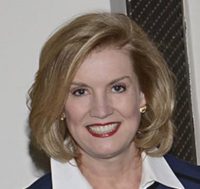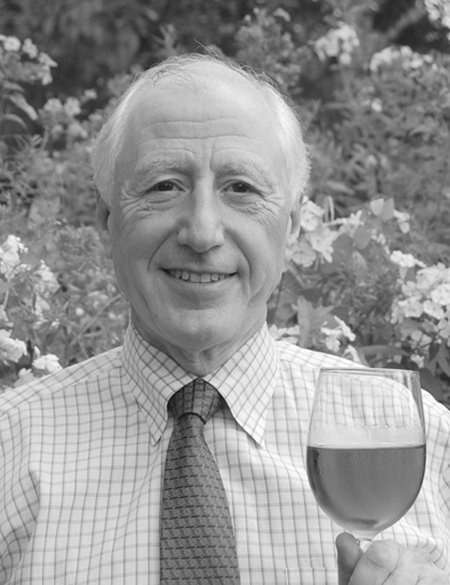Councilwoman Beth Smayda Reflects on Eight Years in Public Office

As Beth Smayda prepares to step down after eight years serving on the White Plains Common Council, she agreed to talk with The White Plains Examiner (WPE) about the experiences she had and the work she has done as a member of the legislative group.
WPE: You were elected to the White Plains Council in 2009, taking office in January 2010, right in the middle of one of the biggest financial crises in the country. Did your experience with finances cause you to consider running for a Council seat at that time?
Smayda: Yes, definitely. Having previously served on the City’s Budget & Management Advisory Committee (BMAC) and as chair of the White Plains League of Women Voters City Budget Committee for 20 years, I had been following City finances for many years. I became very concerned with some of the practices and trends I had seen the City employing to close budget gaps and then when the recession hit, things got worse. One thing I had learned in my job about financial distress is that it rarely goes away on its own and the sooner you address it the better—in other words, “hope is not a strategy.” Working with my colleagues and taking this approach, we were able to get the City stabilized early on, with help from our taxpayers, employees and residents.
WPE: As you leave, do you feel your work has left the city with a strong financial footing? Is there anything in particular in this area that you fought for or consider to have been especially important?
Smayda: Yes, the City is on firm financial footing as evidenced by Moody’s removing the negative outlook on our bond rating, a return to realistic budgeting, increased reserves, and financial results outperforming our budget.
Financial stability, however, is not static—it is the result of a constant effort to maintain fiscal control through numerous decisions every day. I am particularly proud of a number of initiatives with which I was involved that the Mayor, Council and administration rolled out that have increased efficiencies while still maintaining quality services; such as the merger of the Parking and Traffic Departments, interest savings from the use of NYS Environmental Finance Corporation financing, the use of remote cameras in the council chamber, a DPW management study that has greatly increased the productivity and accountability in that department, the reworking of the City’s fiscal performance goals to protect against future economic downturns, and many more.
WPE: Aside from finances is there any other issue that faced White Plains, which you considered important in developing policy for the city’s future?
Smayda: I believe that it is important to consider all residents in the City when making decisions. Most residents are so busy working, raising families and juggling their day-to-day responsibilities that they truly just want to trust their elected officials to make sound, responsible decisions on their behalf. It hit me right after I was first elected what a big responsibility the voters had entrusted in me. Many times in the midst of controversial and emotional proceedings, this thought centered me and guided me in my deliberations and policy positions.
WPE: Does anything stand out as having been a disappointment?
Smayda: Long before we heard about “alternative facts” on the national level, we saw it playing out at the local level, which was disappointing and a departure from my experience in the private sector. It is certainly citizens’ responsibility to share their personal perspectives, but I believe it is dangerous when elected officials make up their own facts to pander to small groups for some perceived short term political gain. I believe that it is the responsibility of elected officials when making decisions to carefully synthesize all of the input they receive and use careful analysis, facts, their own moral compasses and the law to make good policy. We are very fortunate in White Plains that a strong majority of the White Plains Common Council believes the same and is guided by the same principles.
WPE: Is there anything you worked on that you want to see move forward in coming years?
Smayda: BMAC has been exploring continued integration of technology into City operations and processes to increase efficiency and provide a better experience for residents and employees. For example, the Building Department has rolled out an on-line plumbing and electrical permit application system. This should be expanded to a multitude of other permit applications that residents submit, with the ability to track the status of their applications online. The Finance Department has tested an online payroll system, which shows promise for streamlining that process while allowing employees easier access to payroll-related information. It would serve the City well to take a comprehensive look, perhaps with the help of an outside consultant, to explore which processes will lend themselves to modernization in the future.
WPE: Do you have advice to give the Mayor and Council?
Smayda: Nothing that they haven’t heard from me previously, which is that budgeting is a year-round process and the City needs to continually be looking at the financial implications of its decisions, as well as finding better ways to do things. We are at an all time low employee headcount in the City, but I don’t see us going back to pre-recession staffing levels. The property tax cap, the imminent decrease in deductibility of local taxes, and structural changes in the way people shop, which has prevented growth in our sales tax, will all exert pressure to limit City expenditure growth. It will be incumbent on the Mayor and Council to make sure the City is doing everything it can to maintain that balance.
WPE: How different is White Plains now from when you took office eight years ago?
Smayda: There are numerous physical changes in the City, but for me, the biggest change is an approach to governance. When I came into office in the midst of the recession I would often hear, “we’ve never done it like that”,” with that being an explanation for why things couldn’t be done differently. There were also a lot of silos and collaboration across department lines was difficult. There is now a real “can do” and collaborative attitude among City workers and everyone is “rowing” in the same direction, to the direct benefit of our residents. In White Plains we have hard-working, competent, and intelligent Commissioners and staff who are great problem solvers. They understand the financial parameters within which the City needs to operate and are willing to try new approaches to ensure continued or even higher levels of service.
WPE: Do you have personal plans to pursue now that your time will be freed up a bit?
Smayda: Well, I still have another full time job so I am looking forward to transitioning from two jobs to one job, freeing up some time to relax and travel to visit our three children who are scattered across the country. My husband and I also hope to spend more time just trying to stay healthy and fit!
WPE: Do you have plans to continue your public service in ways other than serving on the Common Council?
Smayda: I certainly expect to stay involved in the community and am exploring a number of different directions. There are so many amazing organizations doing important work in White Plains and the need is greater than ever for people to get involved and give back. I am looking forward to moving to this new phase of public service.


